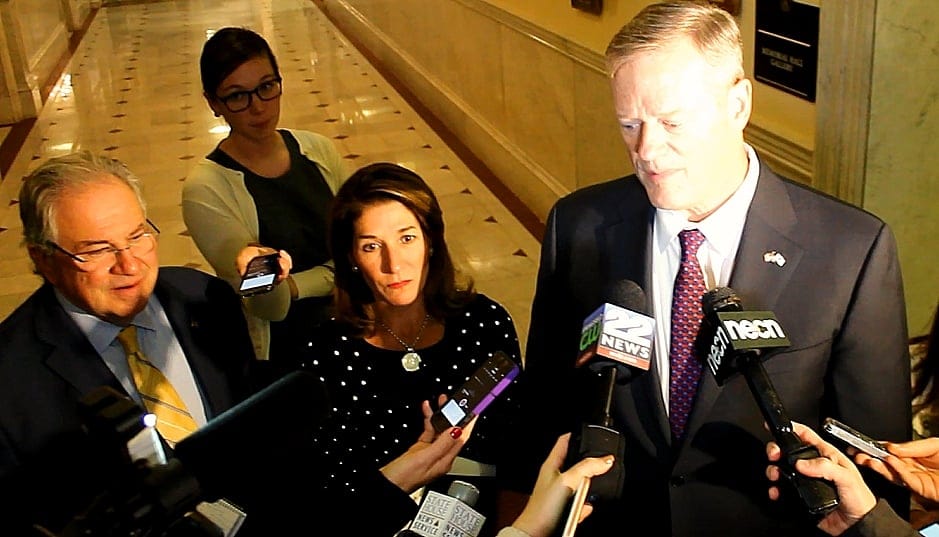Baker, Beacon Hill leaders, weigh potential marijuana regulations in wake of pot law’s passage

BOSTON — After emerging from a meeting Monday afternoon with House and Senate leaders, Governor Charlie Baker told reporters that any changes made to the state's new marijuana law must "abide by and live up to the intent of the voters."
The recreational use of marijuana became legal in Massachusetts on Thursday, December 15, following a ballot initiative victory on Election Day that saw Bay State voters back the measure 54 percent to 46 percent. Lawmakers are now weighing taxation and enforcement matters.

